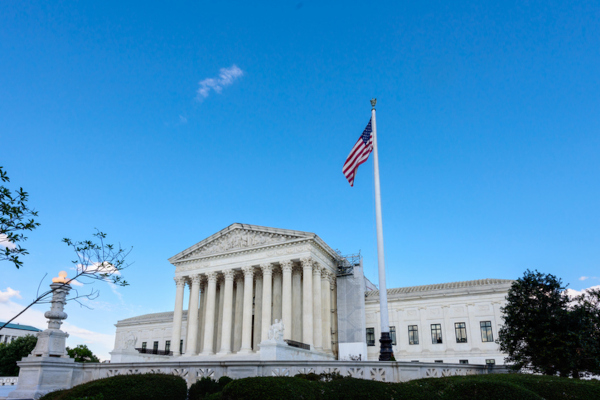
By Rob Marus
On August 1, AAU and seven other higher education associations filed a friend-of-the-court brief in the Supreme Court of the United States opposing the Trump administration’s effort to stay a lower court’s ruling that reinstated hundreds of National Institutes of Health research grants.
“This case is about the Executive Branch’s recent, unprecedented efforts to undermine the congressionally mandated scientific mission of NIH, the largest funder of scientific research in the world. NIH awards billions of dollars each year to support the scientists, studies, and institutions that drive American innovation,” the associations noted.
The brief asserted that the administration’s blanket cancellation of NIH grants for ideological reasons flouts longstanding principles of science-based decision-making and that the mass termination of NIH grants has destabilized the scientific research landscape, decimated research careers, and wasted government resources.
“These grants … fund science that the government has determined will further the national interest, leveraging what has aptly been described as the symbiotic relationship between the government and the research community — which has built the physical and human capital to carry out this work, and has played a key role in assessing the quality and promise of proposed research,” it said.
The brief reminded the court that NIH grants are not gifts, but rather that they fund scientific research that benefits all Americans. “NIH’s mass termination has disrupted research into diseases like breast and cervical cancer, diabetes, Alzheimer’s disease, and cardiovascular disease, and it has forced clinical trials testing potentially life-saving treatments to halt, resulting in significant harm to participants.” It added: “Granting a stay would only exacerbate these devastating effects on researchers, patients, and public health more broadly.”
The administration appealed to the Supreme Court after the 1st U.S. Circuit Court of Appeals denied its request to halt the order issued by a federal district court in Massachusetts. The applicable cases are American Public Health Association, et al. v. National Institutes of Health, et al. and Commonwealth of Massachusetts, et al. v. Robert F. Kennedy, Jr., et al.
Because this case is being considered on the Supreme Court’s emergency docket (sometimes called the “shadow docket”), a ruling could be issued at any time – possibly within days or weeks.
AAU and the Association of American Medical Colleges led the brief, which was also joined by APLU, ACE, NAICU, COGR, AASCU, and the Association of Governing Boards of Universities and Colleges.
Last month, AAU President Barbara R. Snyder also joined the leaders of AAMC, ACE, APLU, and COGR in sending a letter asking NIH Director Jay Bhattacharya to reinstate all NIH grants – not just the grants specifically included in the lists prepared by the plaintiffs in the two Massachusetts cases noted above – that have been terminated under agency directives that the district court has found to be unlawful.
“Taking this action would demonstrate your commitment to the importance of maintaining federally funded research programs and research careers and would allow the agency to take a more thoughtful approach to determining the individual scientific merits and progress of these hundreds of research projects,” the letter stated.
Rob Marus is deputy vice president for communications at AAU.